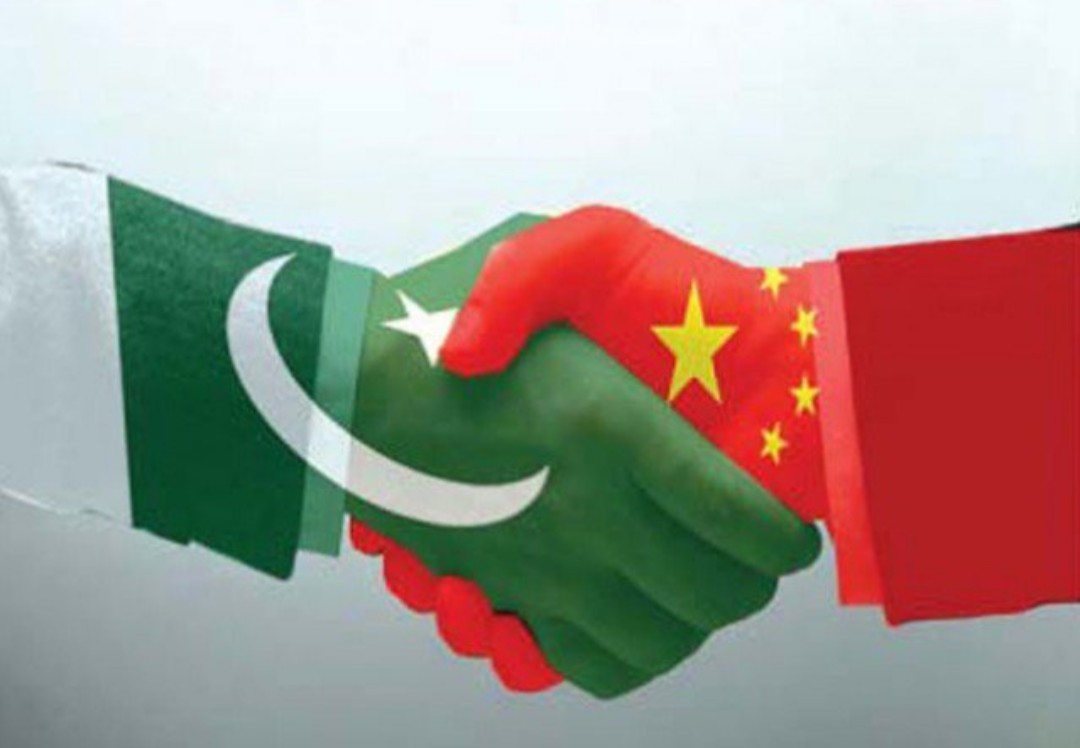Both countries back each other on ‘core national interests’
China and Pakistan on Friday said they would firmly back each other on “core national interests”, as their Foreign Ministers discussed the Kashmir issue in their annual strategic dialogue.
Pakistan’s Foreign Minister Shah Mahmood Qureshi, left, and his Chinese counterpart Wang Yi at the talks held in China’s Hainan province. | Photo Credit: @SMQureshiPTI/Twitter
China said Pakistan was “its staunchest partner in the region” and it would “firmly support” the country “in safeguarding its territorial integrity, sovereignty and independence” and in “striving for a better external security environment,” according to a “joint press release” from Pakistan’s Foreign Ministry.
At the talks in China’s Hainan province, China’s Foreign Minister Wang Yi and his counterpart Shah Mahmood Qureshi both “underlined that a peaceful, stable, cooperative and prosperous South Asia was in common interest of all parties,” the release said.
Call for dialogue
“Parties need to settle disputes and issues in the region through dialogue on the basis of equality and mutual respect,” the release said. “The Pakistani side briefed the Chinese side on the situation in Jammu and Kashmir, including its concerns, position and current urgent issues. The Chinese side reiterated that the Kashmir issue is a dispute left over from history between India and Pakistan, which is an objective fact, and that the dispute should be resolved peacefully and properly through the UN Charter, relevant Security Council resolutions and bilateral agreements. China opposes any unilateral actions that complicate the situation.”
China’s comments on “unilateral actions” echoed Beijing’s multiple statements last year that hit out at India’s move to dilute Article 370 and end statehood for Jammu and Kashmir. China had also opposed the creation of the Ladakh union territory and said the move had “undermined China’s sovereignty” as it included Aksai Chin and areas claimed by China, although the internal reorganisation did not change India’s external boundaries.
Xi’s message
On Friday, China also released what it called “an oral message” from President Xi Jinping to his Pakistani counterpart, as well as a statement made by Mr. Wang, the Foreign Minister, at the talks. Both those statements did not mention the Kashmir issue.
Mr. Xi, in a message sent to mark the second meeting of a consultation mechanism among the political parties of both countries under the China Pakistan Economic Corridor (CPEC) plan, described the two countries as “brothers and partners” and the CPEC as a landmark project of the Belt and Road Initiative (BRI). He said China would work with Pakistan to “jointly promote the unity and cooperation of countries in the region.”
Mr. Wang said both were committed “to the purposes and principles of the UN Charter, and support for multilateralism, free trade and win-win cooperation, and opposition to unilateralism, protectionism and coercive practices,” said a statement from China’s Foreign Ministry.
The press release from Pakistan’s Foreign Ministry said both sides “agreed on continuing their firm support on issues concerning each other’s core national interests.”
“The Chinese side reiterated that Pakistan and China are iron brothers and Pakistan remains China’s staunchest partner in the region and that China firmly supports Pakistan in safeguarding its territorial integrity, sovereignty and independence, independently choosing a development path based on its national conditions, striving for a better external security environment and playing a more constructive role on international and regional affairs,” it said. “The Pakistani side appreciated China for standing together with Pakistan in safeguarding its national security and sovereignty, and reaffirmed its firm support to China on affairs concerning China’s core interests and issues of major concern, such as those related to Taiwan, Xinjiang, Tibet and Hong Kong.”
Both also agreed “to strengthen cooperation on the Afghan issue” and “appreciated the efforts made by the Afghan government and the Taliban to initiate the Intra-Afghan negotiations.” The press release said they encouraged parties in Afghanistan to “seize this historic opportunity and commence the Intra-Afghan Negotiations at the earliest leading to durable peace and stability in Afghanistan.”
With inputs from The Hindu

